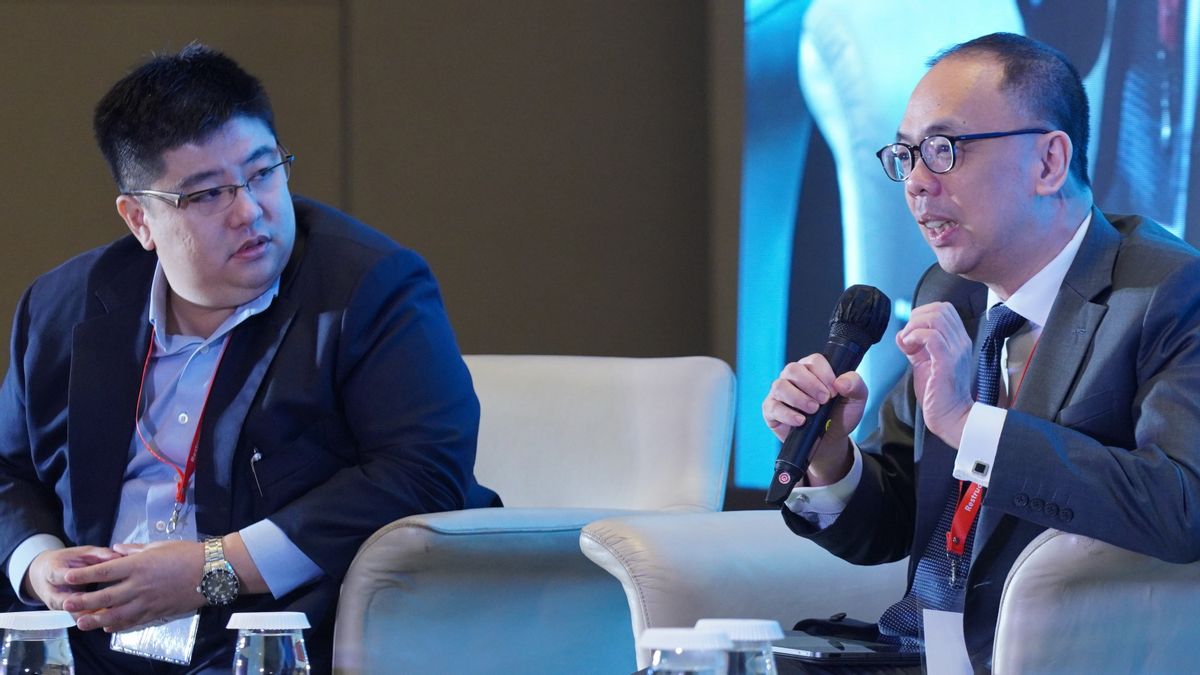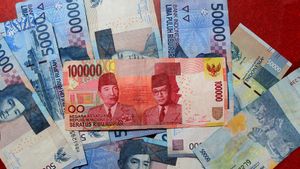JAKARTA - The restructuring insolvency & Governance Conference 2023 which was held last week is the first step to bring together Indonesian and international law and financial experts to discuss openly the procedures for insulating and delaying debt payment obligations (PKPU), considering the importance of both for the business and financial ecosystem.
Secretary of the Ministry of SOEs, Rabin Indrajad Hattari, in the main speech of the event emphasized that the Ministry of SOEs is committed to making the BUMN business ecosystem sustainable, so that it can increasingly have an economic and social impact on the community.
Rabin Indrajad stated that PKPU is one of the solutions, if managed properly, can be an alternative to the restructuring process, as long as it is in accordance with the company's needs and specific capabilities.
"However, given the limited time, creditors' interests, company capabilities, and state financial elements attached to SOE entities, the PKPU process needs to be carried out with careful preparation by mitigating risks and prioritizing good governance," he said, quoted Thursday, November 10.
Therefore, stakeholders must have the same thoughts when facing bankruptcy and PKPU issues within SOEs and supporting the restructuring process, so that the company can recover and be able to maintain its continuity in the future.
From the macro side, the law that oversees PKPU must also be corrected so that there is no silo in this restructuring process. All parties need to rethink and consider changes to the existing Bankruptcy Law.
Rabin Indrajad hopes that Restructuring Insolvency & Governance Conference 2023 can become a constructive discussion forum so that it can produce ideas and solutions to create a conducive business climate with a legal umbrella that is adaptive to the development and dynamics of the world. Strengthening bankruptcy laws and PKPU in a sustainable manner needs to be done to strengthen Indonesia's position in facing global competition.
Director of BlackOak LLC Darius Tay as a specialist in bankruptcy law in Singapore explained Friday (27/10/2023) what caused Singapore to be recognized as an international hub for debt restructuring.
"Singapore continues to improve the legal framework in handling bankruptcy and insolence issues," he said.
This is evidenced by a massive change to Singapore's law with the enactment of The Insolvency, Restructuring and Dissolution Act 2018 (IRDA) and 48 other related additional laws.
Singapore's restructuring procedure, as stipulated in the IRDA, seeks to encourage the company's rehabilitation while ensuring that creditors' rights are adequately protected. However, Darius noted, if liquidation occurs, generally creditors' interests will be prioritized because shareholders often out of the money.
According to him, one of the key factors that makes the handling of bankruptcy and suspension of payments in Singapore more accommodative than other countries is the sophisticated justice specialists and the strong professional instability industry, which are able to contribute fresh ideas and innovative solutions to the restructuring ecosystem.
"Our bankruptcy specialist judge is highly respected in the field of bankruptcy because of their expertise and practical approach in dealing with problems. Our judge not only understands the available devices under local law, but also knows the latest developments in other jurisdictions. This allows them to deal with new issues effectively, both legally and practically," he stressed.
It has been almost 20 years since the law that regulates the inflation and procedures for PKPU was passed, namely Law Number 37 of 2004. Although this law has achieved its goals, the current economy and credit market are much different. The Discussion Forum for the Restructuring Insolvence & Governance Conference 2023 is the right moment to explore the question of how this law can be further refined so that it can adapt to the current and future needs of the Indonesian economy. One of the areas to be considered is the BUMN sector.
Asian Development Bank in its publication Unlocking the Economic and Social Value of Indonesia s State-Owned Enterprises (Des 2022) said that until 2021, there were more than 100 SOEs in Indonesia supervised by the Ministry of State-Owned Enterprises (KBUMN). These SOEs consist of more than 1,000 subsidiaries and have assets of more than 500 billion US dollars (Rp. 8,892 trillion), equivalent to 56.2% of state gross domestic product (GDP) in 2019.
Given the magnitude and importance of these SOE assets towards the Indonesian economy, and seeing the global macro risk to the global economy and the increasing interest rates that occur today, questions about the need for restructuring and insulating SOEs are very important. Especially because SOEs are often mandated with complex missions, some of which are related to national and social development goals as a whole, and combined with various stakeholders.
This and other problems surrounding the inflation and procedures of PKPU are of concern to PT Perusahaan Pengelola Asset (PPA), which since the middle of last year has been in contact with Danareksa Holding and has an important role as the only Indonesia National Management Asset Company (NAMCO) with two main functions, namely restructuring and reviving SOEs that are experiencing difficulties and resolving low-quality assets in the banking sector. Indonesia.
President Director of PT Danareksa (Persero) Yadi Jaya Ruchandi when giving his opening remarks at the 2023 Restructuring Insolvency & Governance Conference event which was held at the Westin Hotel Jakarta said, "Danareksa fully supports the important role of PPA and hopes that PPA will be able to complete the restructuring process and revive SOEs that are experiencing difficulties.
"As well as managing and implementing an effective recovery process for low-performance assets in the internal Danareksa ecosystem and the BUMN ecosystem at large, including banking and non-bank SOEs," he said.
"For example, since the end of 2020, PPA has been given the task of managing and restructuring 22 SOEs that are experiencing difficulties, through a number of restructuring strategies, ranging from PKPU, changing directions, to liquidation. Currently, this number has decreased to 15 SOEs. And for the coming year, we will reduce it again to around 7 SOEs," he added.
Yadi emphasized that in the future Danareksa will support and oversee the asset acquisition process from the system, and after the acquisition, PPA will carry out one of its core competencies in carrying out the asset recovery process to support the creation of an increasingly conducive business climate.
The English, Chinese, Japanese, Arabic, and French versions are automatically generated by the AI. So there may still be inaccuracies in translating, please always see Indonesian as our main language. (system supported by DigitalSiber.id)








